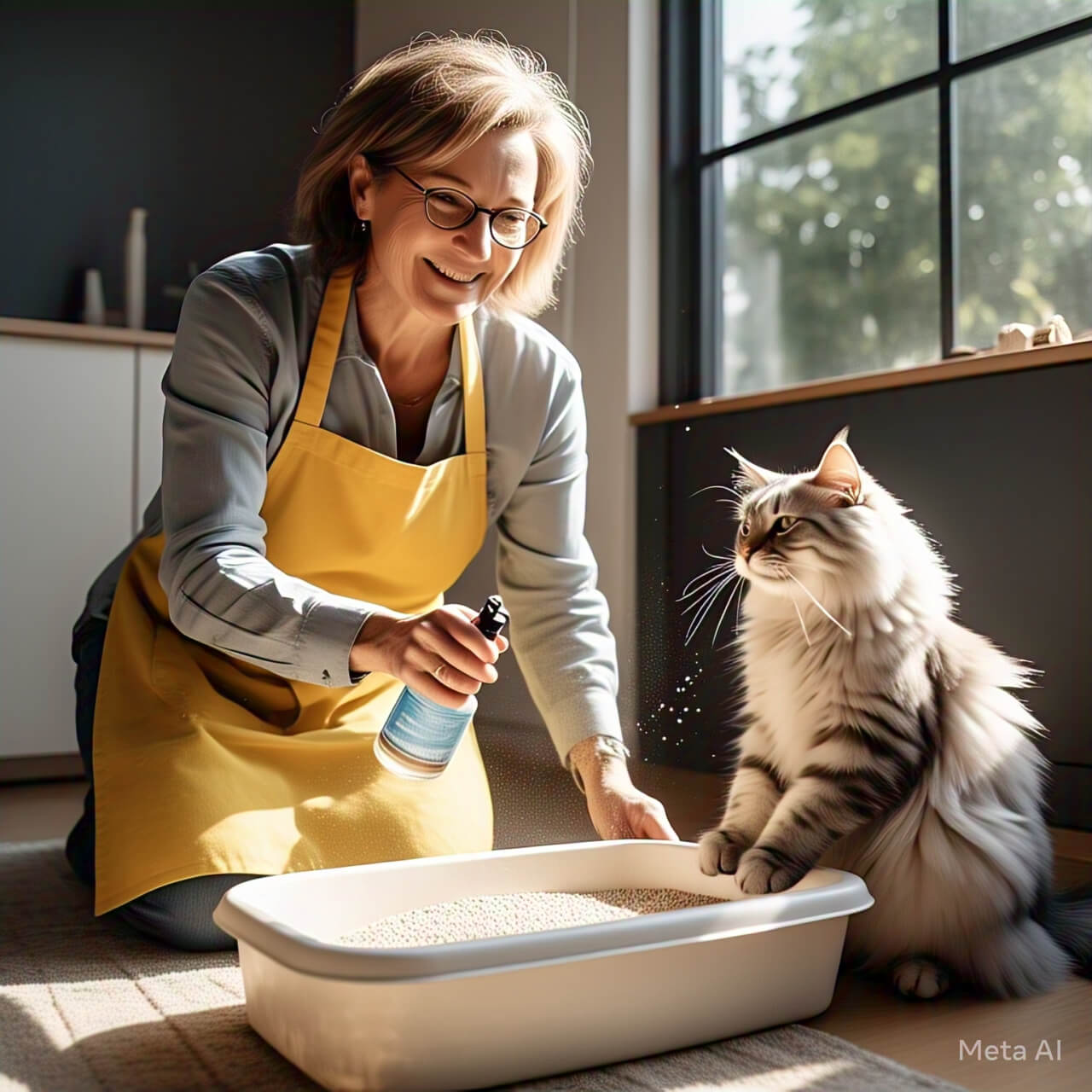If your cat is spraying urine around the house, it can be frustrating and smelly. Cats spray to mark their territory, especially when they feel stressed or threatened. Both male and female cats can spray, but unneutered males do it more often. The good news is that you can stop this behavior with patience and the right steps. First, rule out any medical issues by taking your cat to the vet.
If health problems aren’t the cause, focus on reducing stress, keeping the litter box clean, and making your cat feel secure. Neutering or spaying your cat can also help reduce spraying. Use enzyme cleaners to remove urine smells completely, as cats will spray again if they smell their old marks. Provide plenty of playtime and attention to keep your cat happy. If you have multiple cats, give each one their own space to avoid fights. With consistency and care, you can stop your cat from spraying and keep your home fresh.

10 Easy Tips to Stop Cat Spraying
- Neuter or spay your cat.
- Clean sprayed areas with enzyme cleaners.
- Keep the litter box clean.
- Provide multiple litter boxes.
- Reduce stress in your cat’s environment.
- Use calming sprays or diffusers.
- Give your cat plenty of attention.
- Create safe spaces for your cat.
- Separate cats if they fight.
- Consult a vet for medical issues.
1. Why Do Cats Spray?
Cats spray urine to mark their territory. This is natural behavior, especially in unneutered males. They do it to communicate with other cats, show dominance, or relieve stress. Changes in the home, like new pets or moving, can trigger spraying. Medical problems like infections can also cause it. Understanding why your cat sprays helps in finding the right solution.
2. Neuter or Spay Your Cat
Unneutered male cats spray more often. Neutering reduces spraying in 90% of cases. Females also spray, especially when in heat. Spaying helps stop this. The best time to neuter is before six months of age, but older cats can also benefit.
3. Clean Sprayed Areas Properly
Cats return to sprayed spots if the smell remains. Use enzyme cleaners, not regular ones, to break down urine completely. Avoid ammonia-based cleaners—they smell like urine to cats. Wash fabrics and carpets thoroughly to prevent re-spraying.
4. Keep the Litter Box Clean
A dirty litter box makes cats avoid it and spray elsewhere. Scoop daily and change litter weekly. Use unscented litter—strong smells may discourage use. Place the box in a quiet, easy-to-access spot.
5. Provide Multiple Litter Boxes
If you have multiple cats, provide one litter box per cat plus one extra. Some cats don’t like sharing. Place boxes in different areas to reduce competition and stress.
6. Reduce Stress in Your Cat’s Life
Stress causes spraying. Changes like new pets, loud noises, or moving can trigger it. Keep routines consistent. Give hiding spots, perches, and toys to keep your cat relaxed.
7. Use Calming Sprays or Diffusers
Pheromone sprays (like Feliway) mimic calming cat scents. They reduce stress and spraying. Plug-in diffusers work well in problem areas. Spray near favorite spots to discourage marking.
8. Give Your Cat More Attention
Lonely or bored cats may spray for attention. Play with them daily using toys. Pet and talk to them often. A happy cat is less likely to spray.
9. Create Safe Spaces for Your Cat
Cats need their own territory. Provide separate feeding areas, beds, and climbing spots. If cats fight, keep them apart to reduce spraying.
10. Consult a Vet for Medical Issues
If spraying continues, visit the vet. Urinary infections, diabetes, or kidney problems can cause inappropriate urination. Treating health issues may stop spraying.

FAQs About Cat Spraying
| Question | Answer |
|---|---|
| Why is my cat spraying suddenly? | Stress, new pets, or medical issues can cause sudden spraying. |
| Will neutering stop my cat from spraying? | Yes, neutering reduces spraying in most male cats. |
| How do I clean cat spray smell? | Use enzyme cleaners to fully remove urine odors. |
| Can female cats spray? | Yes, especially when in heat or stressed. |
| What if my cat keeps spraying after trying everything? | Visit a vet to rule out health problems or consult a behaviorist. |
By following these steps, you can help stop your cat from spraying and keep your home clean and odor-free. Patience and consistency are key.









